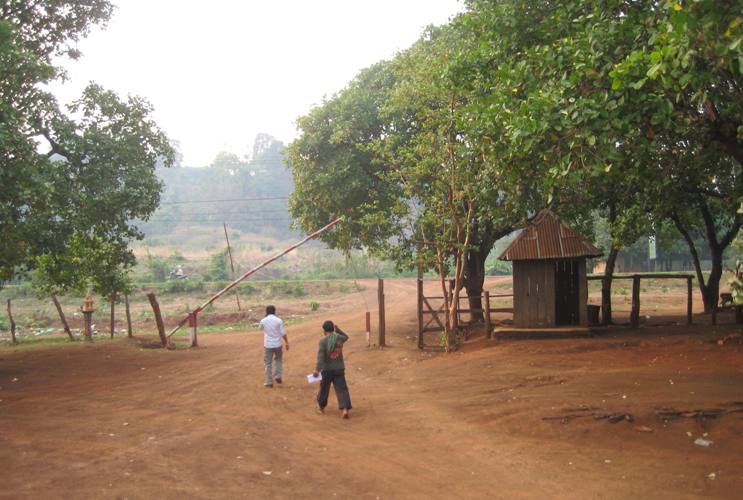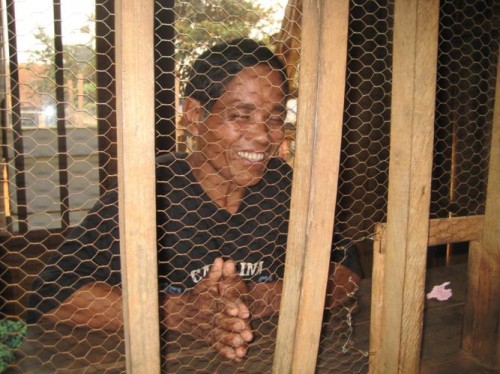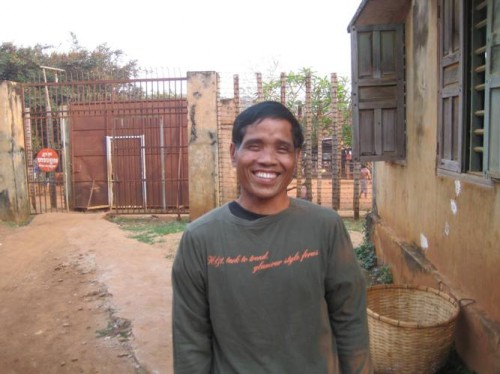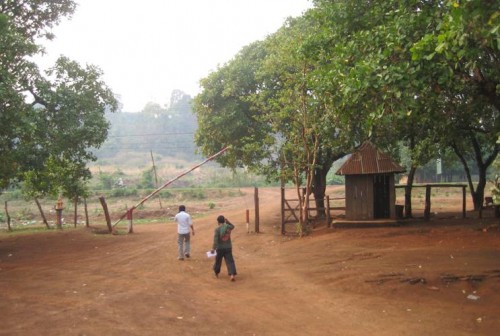
For the past two weeks I have had the fortunate experience of working alongside the International Bridges to Justice (IBJ) team in Rattanakiri, a remote province in far north-eastern Cambodia. I have seen a lot that words simply cannot describe.
On Thursday at around 3pm IBJ’s lawyer, Mr Sary, received a phone call from the court informing us that our client’s bail application had been approved. It is always good news to report that we have had a case dismissed, or a bail application approved. What I was not prepared for were the raw emotions when I had the opportunity to tell our client that he could go home.
Makara is a 51 year old minority indigenous Cambodian from Rattanakiri. He migrated back to Rattanakiri in November 2011 and on his return, the Village Chief and Commune Chief gave him three hectares of land to use as a farm. In preparation for the April planting season, Makara began to clear his new land and build a farm. While he was preparing and clearing his land the police came to arrest him for illegal logging. He explained to the police that it was his land but was sent to prison to await his trial.
I have been inside the prison in Rattanakiri and I have seen Makara’s cell. There is one tiny barred window for a room no bigger than 1.5m x 2m. He was detained there with six other inmates for a little over a month. The room was so small that at night time, Makara told me, each took turns to lie down and sleep.
At 4.30pm we went to tell Makara that his bail application had been approved. His gratitude for the work of IBJ’s lawyer and investigator was evident in his smile. With his hands pressed together in the traditional symbol of respect and appreciation, he smiled.

When speaking to IBJ’s investigator, Makara said: “I was very happy when I met IBJ’s lawyer and that he has helped me leave prison. In prison the room is so small and there is very little air and due to that I am not feeling well. Now I can go and meet my family again. I can go and plant the potatoes, corn and soy bean. So now my family can eat.”

What is burnt in my mind, now and forever, was seeing Makara walk out of prison. What I really appreciate is that he is now free to await his trial away from prison conditions. Moreover, he can now go and plant his crops. Successful bail applications do not only affect the accused persons, they affect the livelihood of the whole family. In a country where people are living daily to simply survive, the loss of one worker, especially the breadwinner, can be devastating.
I feel privileged to have shared this moment with Makara. Not simply because it was a feel good moment, but because it was one person’s life that IBJ had changed. I firmly believe that change starts with improving the situation of one person. Each person that IBJ stands up to represent, and each success that IBJ has here on the ground, contributes to a larger scale change. The justice system is being held accountable. Justice is made to happen- and that is something I feel privileged to witness.

Kate is a volunteer with the Australian Youth Ambassadors for Development (AYAD) Program. The AYAD Program is part of Australian Volunteers for International Development, an Australian Government, AusAID initiative.